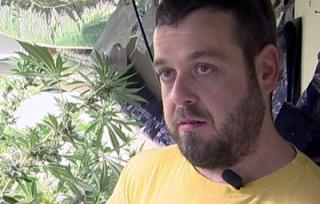Emphasis mine:
By his own admission, Daniel Chong planned to spend April 20 like so many other college students: smoking marijuana with friends to celebrate an unofficial holiday devoted to the drug.
But for Mr. Chong, the celebration ended in a Kafkaesque nightmare inside a San Diego Drug Enforcement Administration holding cell, where he said he was forgotten for four days, without food or water.
To survive, Mr. Chong said he drank his own urine, hallucinated and, at one point, considered how to take his own life. By the time agents found him on the fifth day and called paramedics, he said he thought he could be dead within five minutes. […]
A spokeswoman for the D.E.A. said the case was under investigation, but confirmed that Mr. Chong had been “accidentally left in one of the cells” from April 21 until April 25, and that he had not been charged with a crime.
New York Times: California Man’s ‘Drug Holiday’ Becomes Four-Day Nightmare in Holding Cell
(Thanks Donnie)
Recently: Undercover Cops Seduce High School Students and Entrap Them into Selling Weed


